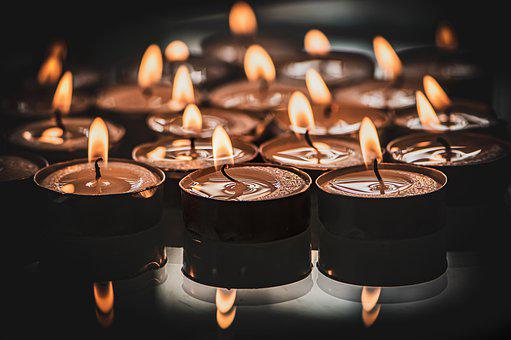Hindsight. This is, in my opinion, the most valuable psychology has to offer.
A shrink once asked me, “Why do you think you sabotaged your chances of succeeding for so long?” Was it your father’s success that seemed unattainable to you? During an interview with comedian Marc Maron, in his podcast entitled WTFactor David Duchovny said that the greatest gift his father had given him was to be ordinary.
This idea was already in me. I had expressed it during our sessions. The shrink had cleaned up the mess. After only a few encounters, it offered me a clear point of view, like a landscape that one appreciates from the heights in dry, clear weather.
Seeing things well opens other doors in addition to closing some. We now know what the beast that nibbles us from the inside looks like. In the race of life, it was only a shadow. An elusive monster that made us unhappy without us understanding why.
The literature offers something similar. Through stories, we get into people’s heads. fictitious or not. The authors give us access to the human psyche, stripped of the second-hand costumes of the circus of appearances. We understand that we are not alone with our intimate and sometimes unmentionable thoughts.
With before death, David Dorais does both. Doctor of literature, doctoral student in psychology, he offers the autobiographical account of a story that is hard to believe is true. One day, he meets Anne-Marie. She confides to him that she is suffering from a cancer which will kill her within a few months. And he decides to go out with her despite that.
It’s death that interests me here. It is the shamelessness of his story, in which he gives himself up in his worst light. His not always pure goodness: he immediately admits having thought that going out with a dying woman would make a good book.
I went to secondary school with David. He was one of the “brilliants”, I was one of the spoilsports who hid their ill-being in buffoonery. However, I rarely read the works of friends or even acquaintances, for fear of being disappointed. I know, it’s stupid. I’ll have to talk to a shrink about it. Except that David’s proposal seemed so singular to me that I wanted to know: why was he doing this?
“My mode of existence, he explains, is very much how I can help you, support you, save you. It is not bad in itself, provided that we get something out of it, that there is a minimum of reciprocity. Instead, David struggles with a sort of savior syndrome.
Anyway, it’s death that interests me here. It is the shamelessness of his story, in which he gives himself up in his worst light. His not always pure goodness: he immediately admits having thought that going out with a dying woman would make a good book.
Dorais cultivates the kind of unease that comes with unveiling her truth. It offers perspective so that we too can better see the coexistence of unmentionable thoughts with our noblest feelings. I recently had a conversation with a person who told me that he felt both sad and relieved at the death of his father, very ill and in need of a lot of care. We agreed that these feelings can coexist despite their apparent contradiction. Still, it’s easier to say than to accept.
David Dorais goes this route in his book. And takes us to all sorts of places where bare humanity meets scholarship. Like Emmanuel Carrère, he slips pieces of humanist philosophy into his story, talks about tarot, wonders about the existence of ghosts without seeming to come out of a psychotropic delirium.
“Don’t get me wrong,” he insists. I don’t know if ghosts exist. But I know the dead still exist. Anne-Marie, I talk to her, I buy things thinking of her. She continues to exist in my life. The dead exist, we could give them more space. »
We come back to occultism. The attraction for tarot, magic and astrology, which are experiencing an astonishing comeback, particularly among young people. For David, literature, like these divination activities, stems from the same stimulation of the imagination.
We live in an age of image unprecedented in the history of mankind. It was once reserved for the elite and the clergy; now we live in images and they accompany us everywhere, from the selfie to the TikTok video.
The imagination which is activated in contact with images, that is the real use of all this as of literature.
These means, as well as psychology, offer us perspective. The writing of chronicles too. They create a space to think about our lives, to give them meaning. We come face to face with ourselves, stripped of our social trappings. The truth emerges, hard and cold as death, but it is to help us live.
We want to thank the writer of this short article for this awesome content
The place of the dead
You can find our social media pages here and additional related pages here.https://nimblespirit.com/related-pages/

